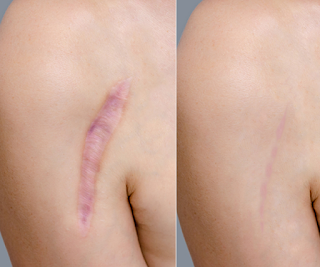Liposuction Surgery In Hyderabad
Liposuction is a surgical procedure designed to remove excess fat deposits from specific areas of the body. It is also commonly referred to as lipoplasty or body contouring. The procedure involves the use of a suction technique to remove unwanted fat cells, resulting in improved body shape and proportion.
During liposuction, a small incision is made in the targeted area, and a thin tube called a cannula is inserted through the incision. The cannula is connected to a vacuum device or syringe, which creates suction. The surgeon then moves the cannula back and forth to break up the fat cells and suction them out of the body.
Liposuction is often performed on areas where stubborn fat accumulates, such as the abdomen, hips, thighs, buttocks, arms, and neck. It is important to note that liposuction is not a weight loss method or a substitute for healthy lifestyle habits. Instead, it is primarily used to reshape and contour specific areas of the body by removing localized pockets of fat.
Like any surgical procedure, liposuction carries certain risks and potential complications. These may include infection, bleeding, uneven contours, changes in sensation, fluid accumulation, and scarring. It is essential to consult with a qualified and experienced plastic surgeon to determine if liposuction is the right option for you and to discuss the potential risks and benefits associated with the procedure.
Liposuction is a surgical procedure designed to remove excess fat deposits from specific areas of the body. It is commonly performed on areas such as the abdomen, hips, thighs, buttocks, arms, and neck. The goal of liposuction is to improve body contours and achieve a more proportionate and aesthetically pleasing appearance.
Here are some key points about liposuction:
Procedure: Liposuction involves making small incisions in the target area and inserting a thin tube called a cannula. The cannula is used to suction out the excess fat deposits, sculpting the area to achieve the desired contour. There are various liposuction techniques available, including traditional liposuction, laser-assisted liposuction (such as SmartLipo), ultrasound-assisted liposuction (such as VASER Lipo), and power-assisted liposuction (such as PAL).
Candidacy: Liposuction is suitable for individuals who have localized areas of excess fat that are resistant to diet and exercise. It is important to note that liposuction is not a weight-loss solution or a treatment for obesity. Ideal candidates for liposuction should be in good overall health, have realistic expectations, and be committed to maintaining a healthy lifestyle after the procedure.
Benefits: Liposuction can provide several benefits, including improved body contours, enhanced self-confidence, and a more proportionate figure. It can help address stubborn fat deposits that are difficult to eliminate through diet and exercise alone. Liposuction is often combined with other cosmetic procedures like tummy tucks or breast reductions to achieve comprehensive body contouring.
Recovery: The recovery period after liposuction varies depending on the extent of the procedure and the individual's healing process. Most patients can expect some bruising, swelling, and discomfort, which can be managed with prescribed pain medications and compression garments. Recovery time typically ranges from a few days to a few weeks, during which physical activities may be limited.
Risks: As with any surgical procedure, liposuction carries certain risks and potential complications. These may include infection, bleeding, contour irregularities, fluid accumulation, numbness, and scarring. It is important to choose a qualified and experienced plastic surgeon to minimize these risks.
Consultation: If you are considering liposuction, it is essential to schedule a consultation with a board-certified plastic surgeon. During the consultation, the surgeon will evaluate your specific concerns, discuss your goals, and determine if liposuction is the appropriate procedure for you. They will also provide detailed information about the procedure, discuss potential risks, and address any questions or concerns you may have.
It is important to have realistic expectations and understand that liposuction is not a substitute for a healthy lifestyle. While it can provide significant improvements in body contours, maintaining the results long-term requires a balanced diet, regular exercise, and a healthy lifestyle overall.
Please note that this information serves as a general overview of liposuction, and it's crucial to consult with a qualified healthcare professional for personalized advice and guidance regarding your specific circumstances.




Comments
Post a Comment